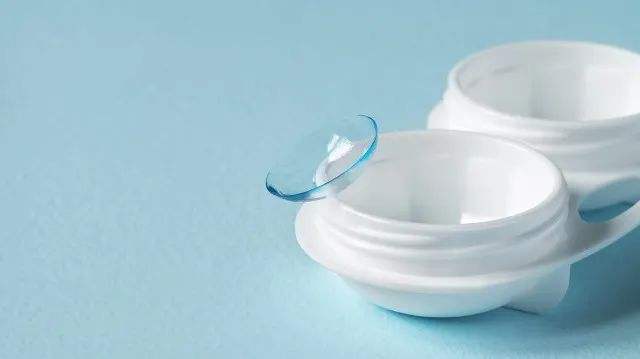Can You Wear Contacts After Lasik? Yes Or No?

Can you wear contacts after Lasik? You can’t wear contacts after Lasik.
Numerous patients who underwent LASIK were able to do without their glasses and contact lenses. In fact, about 95% of patients who have undergone LASIK surgery are happy with the outcome. Of course, not everyone who has LASIK has perfect vision. Results vary depending on a number of variables, including how your corneas respond differently to laser energy and how quickly your eyes recover from surgery. So, can you wear contacts after Lasik?
Answer To Can You Wear Contacts After Lasik
Most of the time, if you were able to wear contact lenses successfully before LASIK, you will be able to do so again after the procedure. But if you had trouble putting on contacts before having LASIK, you’ll probably continue to have issues after the procedure.
Although the main objective of LASIK is to completely eliminate a person’s dependence on glasses and contact lenses and correct their myopia, hyperopia, and/or astigmatism, contact lenses may occasionally be needed or preferred after LASIK surgery.
Read about: Can You Wear Contacts In A Tanning Bed: Is It Ok – Health Wearables
Nevertheless, the good news is that, for the most part, contact lens use after LASIK is secure and efficient. Many people discover that, if such lenses are worn for vision correction in both eyes after LASIK, hard breathable contact lenses—including sclera lenses—or mixed contact lenses offer clearer vision than soft lenses.
Finally, if you want to see as clearly as possible after LASIK, and you are over 40 years old and notice the symptoms of presbyopia, glasses with progressive lenses are usually your best choice, even if you only wear them part-time.
Is It Safe To Wear Contact Lenses After Lasik With Your Optometrist’s Help?
In some circumstances after LASIK, it is safe to wear contact lenses. After undergoing this laser-based refractive surgery, you might need contacts for a few different reasons.
- Contacts used to treat or “bandage”: For several days after a more invasive or older type of refractive surgery, such as photorefractive keratectomy (PRK), you were required to wear a protective, therapeutic contact lens to cover your eye. It is uncommon to require a therapeutic contact lens (TCL) after LASIK in the modern era, but if your eye doctor is worried about how well your corneal flap will heal, they might ask you to wear one for one or two days.
- “Soft” contacts, also known as hydrophilic contacts: You can use standard soft, gas-permeable contacts to improve visual acuity in the unlikely event that your refractive error is not sufficiently corrected after LASIK. You probably require a new eye exam and contact lens fitting so that your optometrist can manage a contact lens that will fit over the altered shape of your cornea and update your refractive error. According to a survey, between 10 and 25 percent of individuals wear contact lenses after LASIK in order to maintain their full visual acuity, including their ability to see far away.
- Toric soft contacts: Toric lenses can correct this refractive error if you still have a small amount of astigmatism after LASIK, which results in general vision blurriness. Toric lenses, however, cannot be used to treat irregular astigmatism, either before or after LASIK. Regardless of LASIK, they are also not advised for astigmatism of a higher degree.
- Iatrogenic corneal ectasia contacts and post-hypermetropic repair: A cornea with post-hypermetropia and iatrogenic corneal ectasia is steeper in the center than in the edges. This resembles keratoconus, a condition where the cornea’s middle protrudes with extra tissue. A unique fit for the contact lenses over the cornea is necessary for this. You must have contact lenses specially fitted for these conditions because the way that LASIK alters your cornea may be unusual.
- Scleral contacts: These lenses rest on the white portion of your eye rather than just the cornea and iris. They are regarded as a “lens of last resort” even though they are gas permeable because they do not allow much of your eye to breathe. You can try these to see if your vision improves if you have an unusually shaped cornea and contact lenses do not rest on it properly, even after having LASIK.
- rigid contacts that are gas permeable: Following the majority of LASIK procedures, these are thought to be the best lenses. They can handle thinner corneas and higher-order visual aberrations while correcting refractive errors like astigmatism.
- Combination contacts: Some people’s eyes may feel itchy or uncomfortable when wearing “hard” or “rigid” gas permeable lenses because of their extreme sensitivity. Combination lenses are soft contact lenses with a rigid surface on top. While the hard portion offers better refractive error correction, the soft portion rests on the surface of the eye. In comparison to conventional RGPs, they also have higher gas permeability.
Will Contacts Make Your Vision Even Better?

The most frequently suggested method of treatment for those with refractive errors is LASIK surgery. Even though not everyone qualifies for LASIK procedures, the majority of vision patients meet the basic LASIK legibility requirements. Furthermore, since surgery typically improves your eyesight to a range between 20/20 and 40/20, you won’t typically need to wear glasses or contact lenses for the foreseeable future after the procedure.
A small percentage of patients, though, might still require corrective lenses after LASIK surgery. While your doctor might advise you to continue wearing glasses for a day or two following the procedure, some people might need to do so for longer. To help your eyes adjust and prevent damaging particles from undoing the progress made, you still need to wear glasses for a few days after the procedure.
However, it would be unusual for your doctor to advise wearing contact lenses after LASIK. Due to the surgery’s actions—creating a flap and altering the cornea—contact lenses may have a negative impact.
If you try to use contacts or glasses in the long run to further your vision improvement, you’ll be let down. This could strain your eyes and impair your vision.
Even years after your LASIK procedure, it’s possible that your vision will deteriorate. At this time, it is acceptable to wear contact lenses. Since the eye doctor will need to write a new prescription for glasses or contacts, you will need their approval.
Conclusion
Consequently, can you wear contacts after Lasik? No, you can’t.
Fitting contact lenses on an eye after LASIK is more difficult than doing so on an eye with an untouched cornea because LASIK can significantly change the shape of the cornea. For those who require contacts after LASIK, specialized gas permeable or hybrid lens designs are typically advised.
In order to achieve the best fit and vision correction, highly accurate, point-to-point measurements of the post-surgery corneal surface are typically required. These instruments are not required for a regular contact lens fitting. The same technology is used by these devices, also known as corneal topographers or aberrometer, to measure the cornea prior to LASIK.